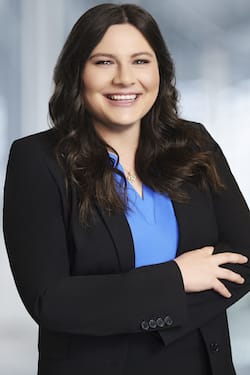Partner Brian Klein, who gave the opening statement last Wednesday in Ms. Thompson’s trial in Seattle federal court and has been cross-examining government witnesses since then, was quoted by the New York Times in a June 8, 2022 story saying, “They [prosecutors] are interpreting [the Computer Fraud and Abuse Act] so broadly that it captures conduct that is innocent and as a society we should be supporting.” The Thompson trial raises important questions about how far security researchers can go in their pursuit of cybersecurity flaws without running afoul of the law. Klein explained to the New York Times that computer fraud law “doesn’t give a lot of visibility to people on what could get you in trouble.”
Klein, and Associate Emily Stierwalt, are handling the case pro bono, as part of Waymaker’s longstanding commitment to pro bono work. Ms. Thompson’s trial raises questions about the reach of the Computer Fraud and Abuse Act, an anti-hacking law. She is alleged to have been the responsible for one of the largest data breaches in history, the alleged hack of Capital One in 2019. As a result, the government has accused her of violating the Computer Fraud and Abuse Act, an anti-hacking law, when she downloaded data of more than 100 million Capital One customers, as well as other laws.
Waymaker is co-counsel with the Federal Public Defender’s Office in Seattle.
In 2021, Baker Marquart became Waymaker. Information on this website reflects results obtained by Baker Marquart. Please click here to learn more about our name change.



